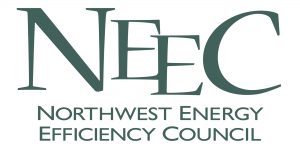HB 3672 passed the Oregon Legislature and awaits the Governor’s signature. After Oregon’s long public discussion about the merits of the Business Energy Tax Credit (BETC), the BETC program survives with some substantial modifications. Energy efficiency projects meeting new thresholds can qualify for a 35% BETC tax credit. A tax credit pass-through mechanism remains a feature of the program. HB 3672 places a $30M biennial cap on the energy efficiency component of BETC. Energy efficiency projects will need to have a three year or greater simple payback to qualify for a BETC. New construction and remodel projects are to either meet the “energy efficiency requirements” of a LEED Platinum rating, three globes under the Green Globe program, or meet the Oregon Reach Code standard. The Oregon Department of Energy is scripted to develop the administrative rules for the BETC.
HB3672 specifies that a project must have received pre-certification by April 15th of this year to qualify for a BETC credit under the previous program. Any project that has not received this pre-certification must re-apply under the new program rules sometime after July 1st of this year.
HB 3672 also covers new tax credit structures for other historic BETC elements related to manufacturing and to renewable energy projects. The Residential Energy Tax Credit was also re-written by this legislation. To read the final bill language that sits on the Governor’s desk, visit www.leg.state.or.us.
Commentary: The extension of the BETC for energy efficiency projects was a priority legislative item for NEEC. The Oregon budget situation and almost two years of negative media coverage about the renewable energy component of BETC led many to believe that the tax credit would not survive this legislative session. A coalition of interests, including NEEC, worked with key legislators to find language that worked for both House and Senate. Make no mistake, the energy efficiency component of BETC took a haircut. The $30M cap may mean that otherwise meritorious projects will be out of luck if applications outstrip the allocated credit amount over the biennium. The requirement for a three year simple payback (or greater) will mean that some projects that would have historically received a BETC, won’t under the new law.
But the general framework for a business energy tax credit for energy efficiency – long a driver in Oregon’s energy efficiency market – remains. The work is not over however. Important rules need to be written by ODOE to clarify bill language (not least of which is the reference to LEED Platinum). Project proposals that were issued in good faith to customers in recent weeks that did not get a pre-certification by the April 15th deadline, clearly face some jeopardy. Working to transition as many of these projects to the new system is a high priority. Questions remain about how a now more limited BETC will affect the energy savings goals of the Energy Trust of Oregon, which has long worked to offer its project incentives seamlessly with the BETC.
NEEC will track the ODOE rulemaking process and keep the industry informed of these important steps. A special thanks goes to NEEC Governmental Affairs representative, Margi Hoffman, for her work on behalf of the industry to keep a BETC for energy efficiency in Oregon.
